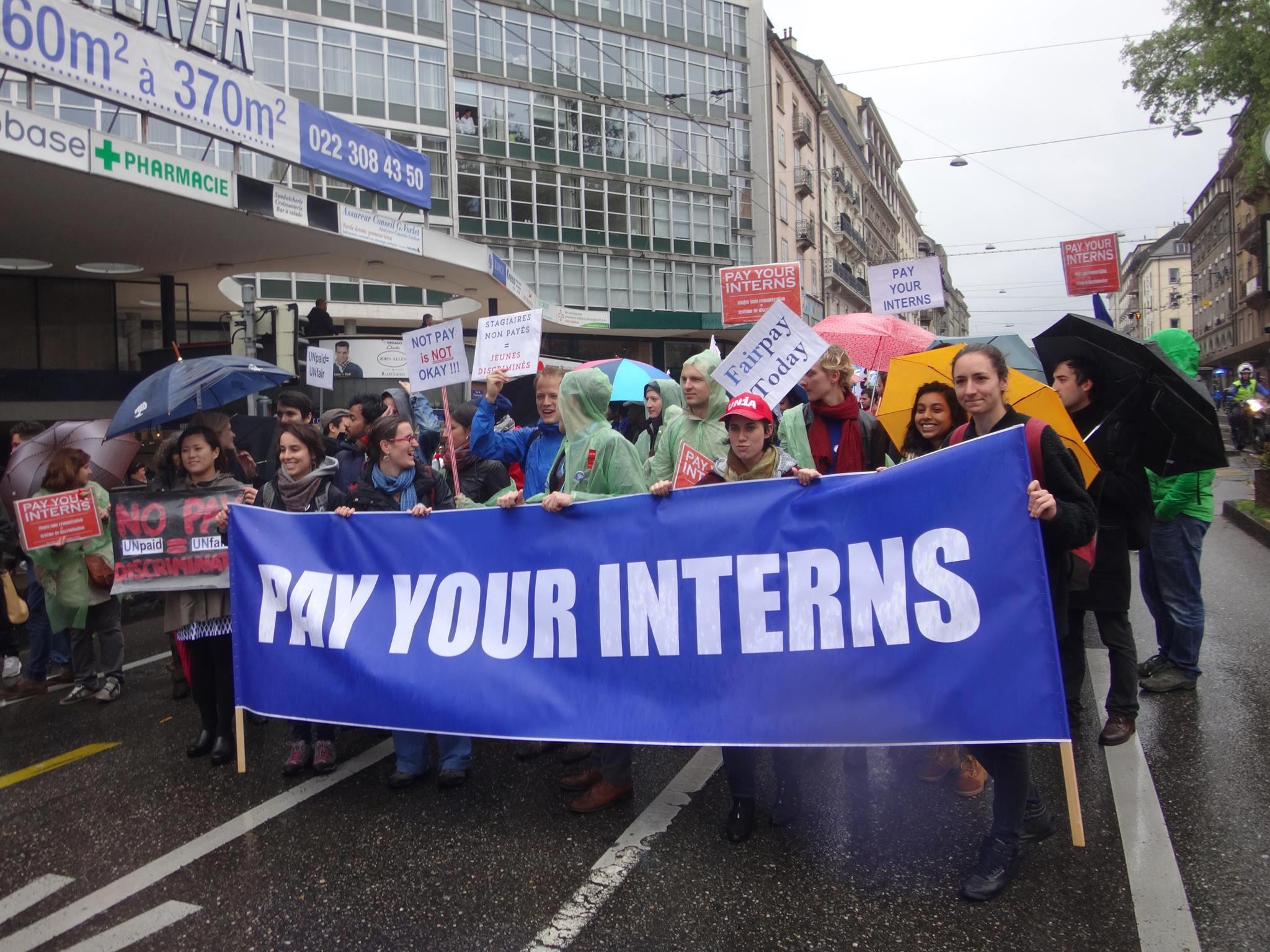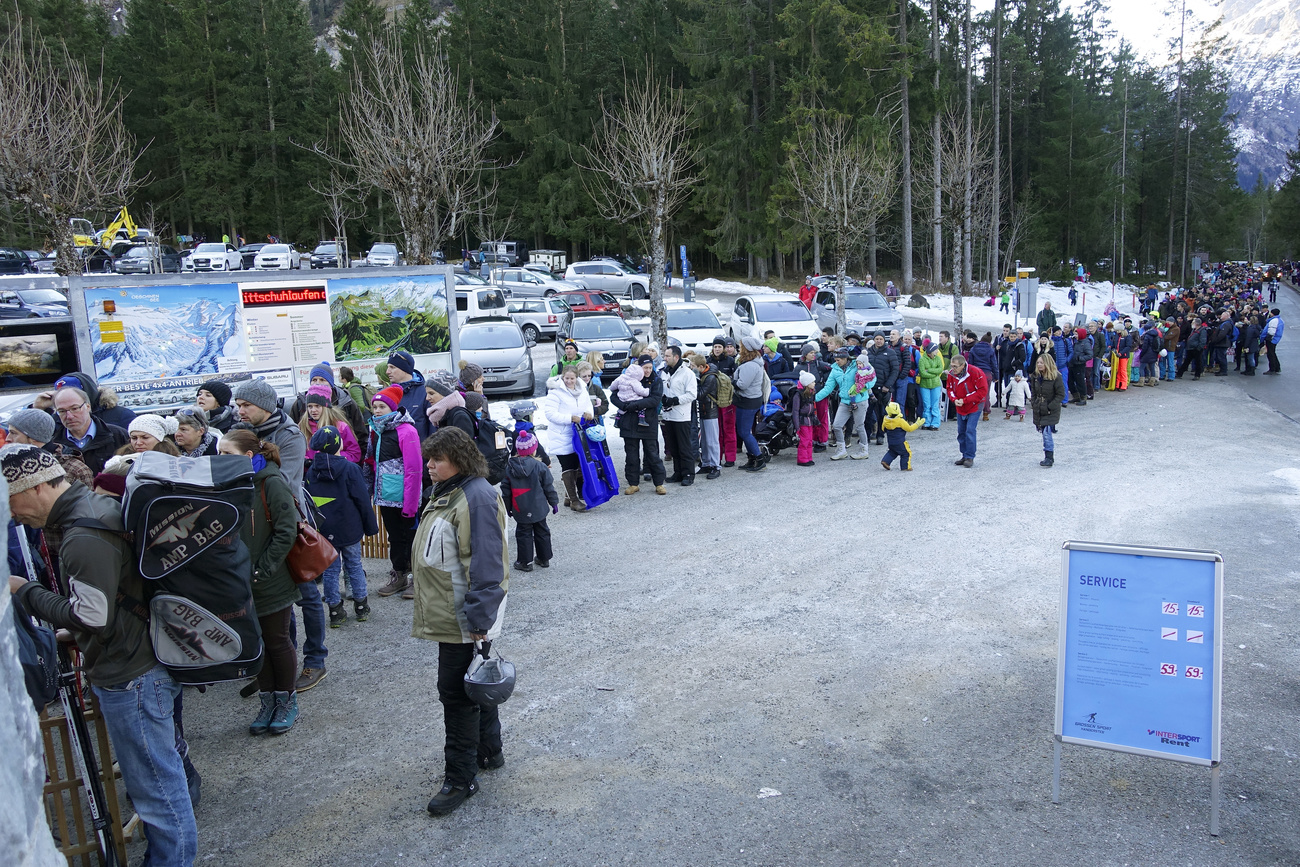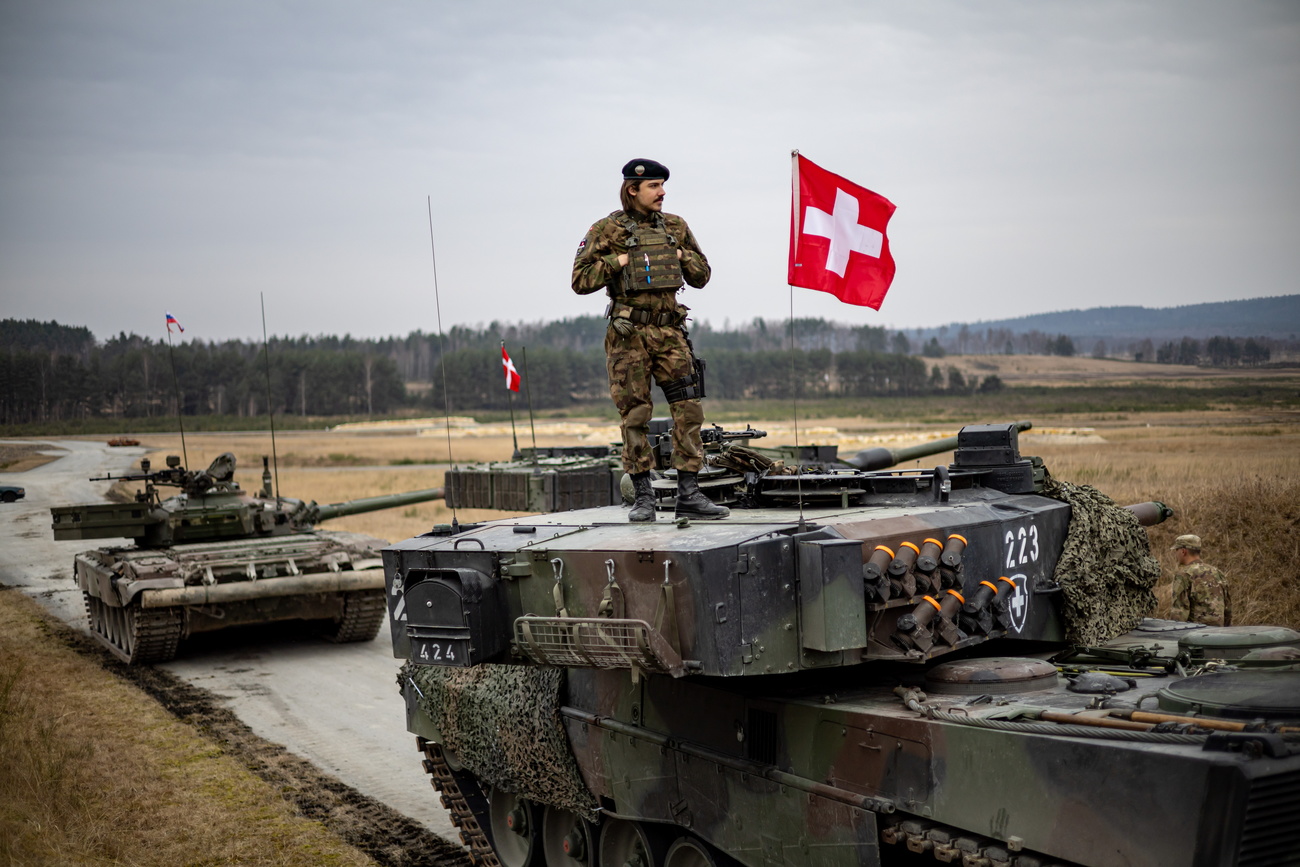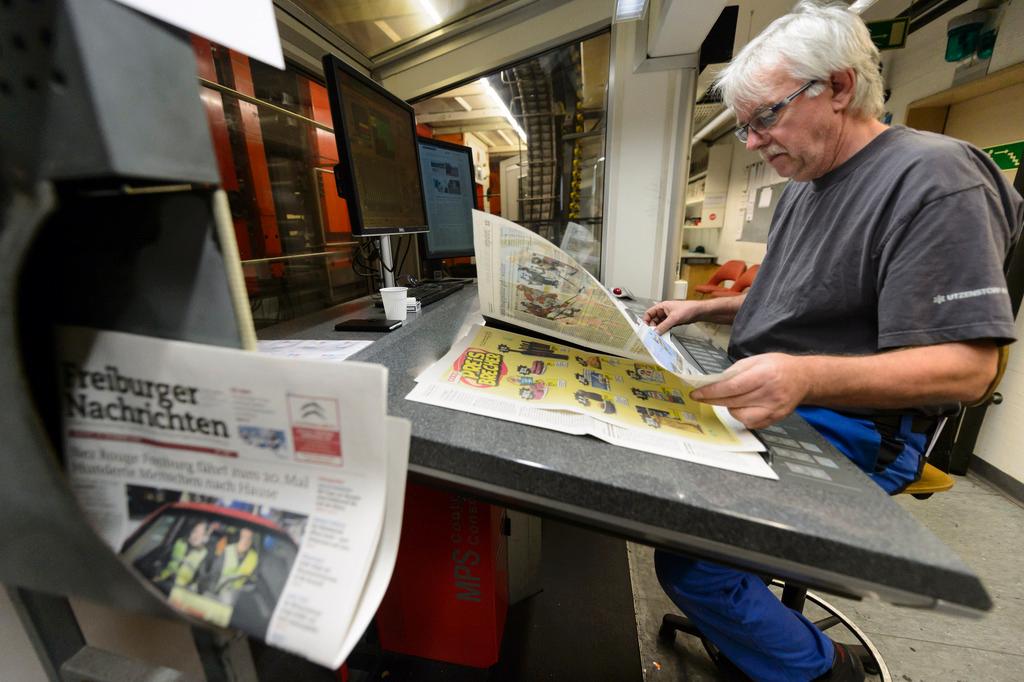Interns face uphill struggle in Geneva

Interns have become the new face of precarious employment: young, overqualified graduates moving from one internship post to the next – often unpaid – in the hope of securing their first regular full-time job. This problem is particularly acute in so-called International Geneva.
Brian* is fed up. “It’s like a new form of slavery,” he declares.
He has a Master’s degree in Political Science and has worked in Geneva for various United Nations organisations like the UN Children’s Fund (UNICEF) and the Office of the High Commissioner for Human Rights (OHCHR), as well as several non-profit organisations – often unpaid.
After years of multiple internships, he still dreams of a steady full-time job in the international human rights field as he juggles part-time work at an NGO, a PhD and bar work in order to survive in Geneva – one of the most expensive cities in the world.
“You do interesting work at these organisations but often you’re never paid a penny. Six months here, another six months there, another three months here. I got really disillusioned. It’s become a vicious circle,” he explains.
Brian is not alone in his struggle. On May 1 around 50 young interns braved the driving rain to take part in the annual Labour Day march through Geneva city centre. At the end of their tether, the group of interns, students and young professionals decided this year to form a “Pay Your Interns” movementExternal link, which now has around 700 supporters on facebook.
They denounce ‘the discriminatory reality of unpaid internships in the United Nations system and in other organisations’. While a handful of UN agencies in Geneva like the International Labour Organisation (ILO) pay interns – the ILO pays CHF1,850 ($1,950) per month since 2011 – they are a minority. A 2013 survey by the Geneva Interns Association (GIA) External linkfound that 68% of interns receive no salary at all.
“No pay is not ok,” shouted the protestors as they crossed the Mont Blanc Bridge.
They say the system is unfair and unrepresentative as only graduates from wealthy families can afford to live as interns without a salary for long periods.
Camille, who has a Masters in International Relations, has been struggling to find a paid job in Geneva after 12 months of unpaid internships. As a result she’s had to go back to live with her parents.

More
The endless internship treadmill
In this extremely competitive job market, organisations are taking advantage, say critics, as they realise that instead of offering entry-level positions like junior professional posts they can put in interns and cut personnel costs dramatically.
“In my last organisation the interns were by far the ones working the longest hours. Our service had around 20-30 interns answering letters and writing reports, doing the basic work of the organisation,” said Shaun*.
Officials at the UN deny interns are providing cheap labour. They say they are doing lots for young people and interns benefit by learning about how the UN system works and this invaluable experience boosts their CV and future careers.
“We offer unpaid internships,” Corinne Momial-Vanian, the outgoing director of the Information Service at the UN in Geneva, told Swiss public television, RTS, in a recent documentaryExternal link. “It’s a directive of the General Assembly. We don’t have the right to pay interns. I hope this will change one day as it’s becoming harder to justify having very qualified young people who often do a very good job.”
Michael Moller, the Acting Head of the UN Office at GenevaExternal link, confirmed last year in a Twitter Q/A that the UN’s hands were tied by a decision taken by members states at the General Assembly a few years back. And not all UN organisations are comparable, they add.
.@pau_petitExternal link @UNExternal link @GenevaImpactExternal link Would love to pay interns but the 193 UN Member States told us not to.
— Director-General (@UNOG_DG) December 17, 2014External linkDemonstrators say UN budgets may be tight but money could be redistributed. Some expressed shock at a recent union claim that the UN’s International Civil Service Commission (ICSC) had decided to pay more to senior staff, financed by cuts to junior and mid-level staff.
“UN officials could also simply decide not to take first-class air tickets and that could pay for an intern for five or six months,” quipped one demonstrator.
The problem is that the traditional pyramid-shaped hierarchical structure at the UN is changing, said Ian Richards, the UN Staff Union President.
“UN posts are gradually getting more senior. Only 3% are entry-level, which is nothing, and 0.3% are under 25 years old. Whenever there are budget cuts they cut junior posts rather than senior ones and when they create new entities they create more senior posts,” he explained. “But managers still need junior staff out of university with fresh ideas.”
He said the solution was either to pay interns a decent wage across the board or to create more junior posts.
Legal support?
The plight of interns has meanwhile caught the attention of some local politicians and employment officials.
“We are creating a system which is impoverishing an entire generation of young people by making them enter the job market as late as possible after getting lots of qualifications which lose value,” François LefortExternal link, a member of Geneva’s Green Party, recently told Swiss public television, RTS.
His party has put forward a local parliamentary motion calling for an end to the abuse of internships. They are supported by the local youth branch of the Greens in neighbouring canton Vaud, which has launched a petition demanding all interns be properly paid – CHF1,100 a month after completing a Bachelor’s degree and CHF2,200 for a Master’s degree and above.
Geneva’s cantonal employment office says it too is concerned and is monitoring closely, urging interns to denounce problematic working conditions.
However, such initiatives only apply to interns working for NGOs based in Switzerland, which are subject to Swiss law and which generally offer fairer working conditions.
UN agencies and international organisations based in the alpine state are not regulated by Swiss employment laws, as they benefit from their own extraterritorial jurisdiction. It is therefore impossible for cantonal labour offices to intervene. Legal issues and disputes at the UN and in international organisations are generally dealt with internally.
Perhaps it is time for change, hinted UN spokesperson Ahmad Fawzi: “I would encourage the General Assembly to revisit this issue. Perhaps a member state could sponsor a new resolution to change the rules.”
Taylor is not very optimistic, however. She is currently completing a Development Studies Masters at the Geneva-based Graduate Institute and has finally managed to secure a relatively well-paid internship after several years of mostly unpaid posts.
“It’s such a huge, slow bureaucratic system that it’ll take years to change,” she declared.
“People back home say ‘You’re working for the UN. That must be the most amazing thing’, but it’s really not. I’m definitely turned off by how the UN system works and am looking to work in the private sector for a bit of job security.”
*names withheld
A 2013 Eurobarometer External linkpoll of 18-35 year olds across the European Union found that 46% had undertaken at least one internship in their lifetime, and that two in five of them had not been paid, while nearly 50% of those who were paid said the income was insufficient to cover basic living costs.
Statistics on the number of internships in Switzerland are hard to find. According to the State Secretariat for Economic Affairs (Seco), between 2004-2010, 13,000 new internships were created in Switzerland.
According to a recent article in Le Temps newspaper, in 2014 661 internships were offered on the Uni-emploi internet job platformExternal link compared with 357 jobs. Only 19% of the internships were paid. Average monthly internship salaries, when announced, fell from CHF2,000 in previous years to CHF1,600.
Geneva is home to the headquarters of 32 international organisations, such as the World Health Organization, the World Trade Organization and the International Committee of the Red Cross. “International GenevaExternal link“, as it is known, is worth around CHF3 billion a year to the canton. In all, some 40,000 international diplomats and civil servants are based in Geneva; in addition there are around 2,400 staff working for 250 non-governmental organisations. Around 8,500 staff work for the United Nations family in Geneva, which is the largest concentration of UN personnel in the world. There are also 168 permanent diplomatic missions to the UN. Some 900+ multinational companies are also registered in Geneva, providing over 76,000 jobs.

In compliance with the JTI standards
More: SWI swissinfo.ch certified by the Journalism Trust Initiative













You can find an overview of ongoing debates with our journalists here . Please join us!
If you want to start a conversation about a topic raised in this article or want to report factual errors, email us at english@swissinfo.ch.